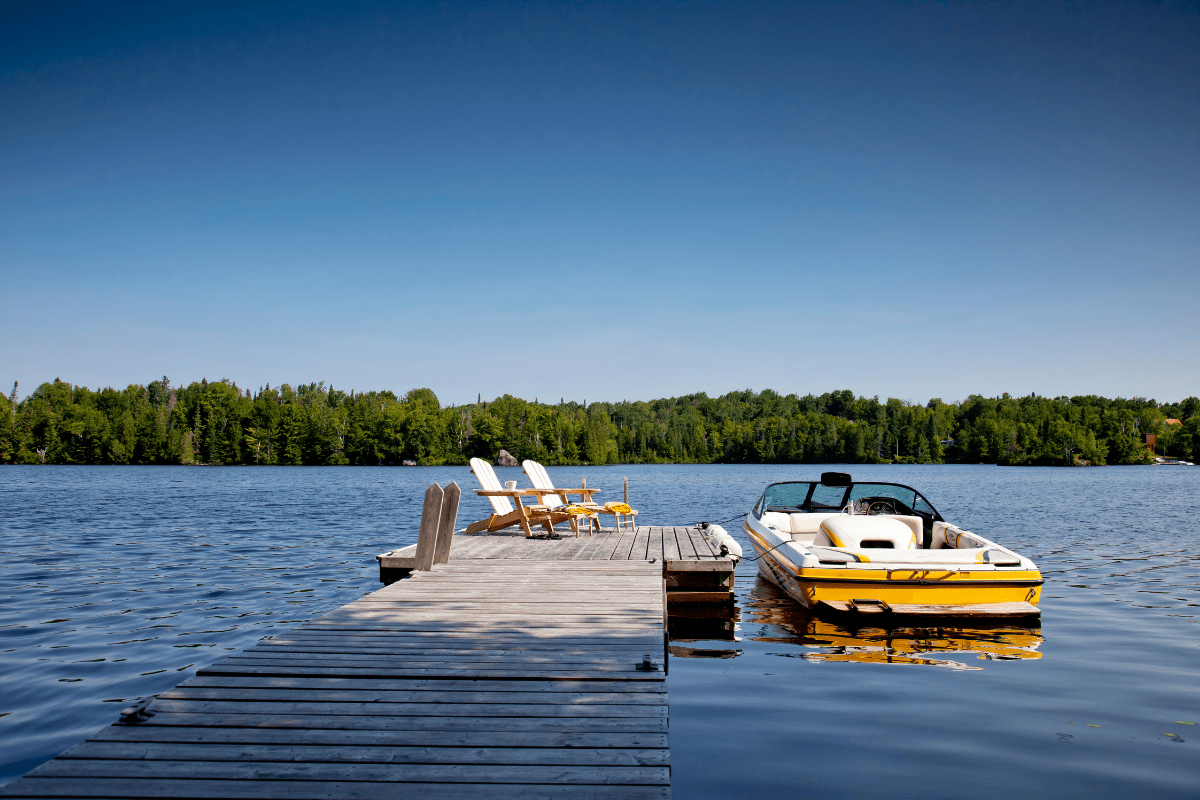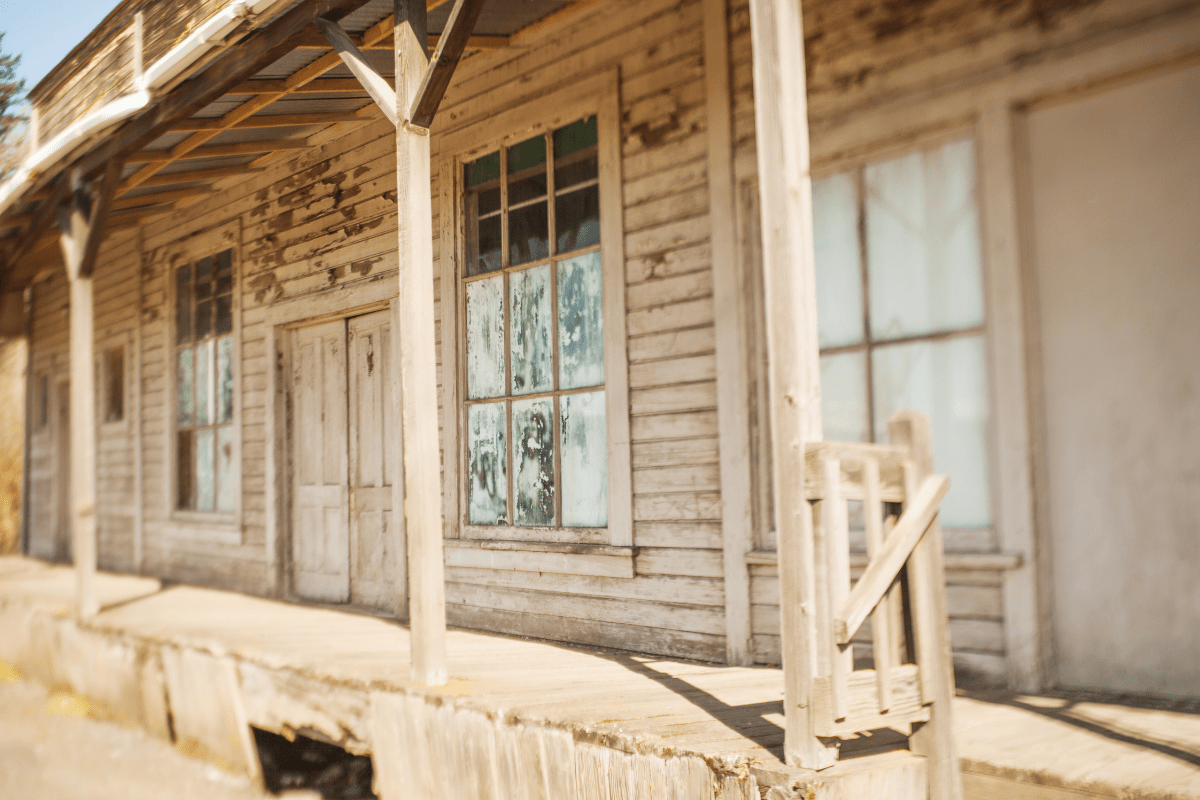Let me guess… you've been staring at that dusty tackle box in your garage, wondering where to actually use it in Georgia. Well, grab a coffee and settle in, because I'm about to share the fishing spots that'll have you calling in sick on Monday (I won't tell your boss).
Lake Lanier: Where everyone goes (for good reason)
Lake Lanier gets all the Instagram glory, and honestly? It deserves it. This 39,000-acre monster has 76 boat ramps, which means you'll always find a spot to launch… even on those crazy holiday weekends when half of Atlanta decides to go boating.
The striped bass situation is borderline ridiculous
Captain Clay Cunningham from Catching Not Fishing isn't exaggerating when he says Lake Lanier has some of the best striped bass fishing in the nation. These fish regularly hit 40 pounds, which is roughly the weight of my four-year-old nephew. Except the fish fight harder.
The spotted bass fishing peaks from February through April when the water hits that magical 50-65°F range. We're talking 5-7 pounders that'll make your drag sing. Local pros swear by 2.75" Cast Echo lures on tiny 1/32-ounce tungsten heads. Sounds specific? That's because it works.
If you're tired of beating the bank for dinks, listen to guide Ken Sturdivant's advice. He points out that most bass anglers waste time casting to shorelines while the real schools hang out offshore in 30-40 feet. Time to invest in some electronics, folks.
Prime GPS coordinates for access:
- Belton Bridge Park: 34°26'14.60"N, 83°40'51.00"W
- Lula Bridge: 34°24'54.66"N, 83°42'27.47"W
- Both offer free Corps launches
- Plenty of parking (usually)
The mountain lakes nobody talks about
While everyone's fighting for parking at Lanier, smart anglers head to North Georgia's hidden gems. These smaller lakes might not have the Facebook fame, but they've got something better… actual fish and actual solitude.
Lake Burton holds secrets (and state records)
Lake Burton produced Georgia's state record spotted bass at 8 pounds 2 ounces. The crystal-clear water surrounded by million-dollar homes makes you feel fancy just fishing there. Pro tip: the homeowners can't stop you from fishing, but they can give you dirty looks if you get too close to their docks.
Yahoola Creek near Dahlonega spans just 100 acres, but don't let the size fool you. This little powerhouse produces bass over 5 pounds regularly, with 12-pounders reported. That's like finding a $20 bill in your old jacket pocket… except it fights back.
Lake Blue Ridge still has smallmouth bass, Georgia's last natural population. Mix in abundant spotted bass, and you've got a 3,300-acre playground that most Atlanta anglers overlook. Their loss, your gain.
Rivers: Where the weird fish live
Georgia's rivers are home to fish you won't find anywhere else. Seriously, these species evolved here and decided they liked it too much to leave.
Shoal bass: Georgia's homegrown fighter
The shoal bass only lives in Georgia rivers, making it our state's equivalent of that friend who refuses to leave their hometown. The current state record stands at 8 pounds 5 ounces from the Chattahoochee in 2021.
Summer's the time for topwater action in the shoals. Double Barrel Bass Bugs and small torpedo lures in boring colors like green pumpkin work best. Why? Because apparently shoal bass are into earth tones. Buck Shoals WMA and the upper Chattahoochee above Lake Lanier offer prime habitat.
Best shoal bass spots:
- Buck Shoals WMA
- Upper Chattahoochee sections
- Rocky areas with moderate current
- Morning topwater in summer
The Chattahoochee's cold surprise
Below Buford Dam, the Chattahoochee stays colder than your ex's heart… rarely exceeding 50°F. This creates a 48-mile trout fishery right through metro Atlanta. The National Recreation Area provides access points about every two miles, with Jones Bridge and Morgan Falls Park offering excellent wade fishing.
From November through May 15, the section below Morgan Falls Dam operates under catch-and-release rules. Plan accordingly, or plan to explain to a game warden why you've got a stringer full of trout.
The Flint River stretches 346 miles and offers fantastic paddling access at Joe Kurz WMA, just 46 miles south of the airport. Perfect for when your flight gets cancelled and you need to blow off steam.
Coastal fishing: Where freshwater anglers get humbled
Georgia's coast offers 100 miles of opportunity to get your line tangled in ways you never imagined. But when you hook that first redfish, you'll forget all about your bird's nest reel.
Redfish: The inshore bruisers
Captain Greg Hildreth, a marine biologist turned guide, explains that big redfish stack up on current rips to ambush bait. The 14-23 inch slot limit with a 5-fish bag means you can actually keep dinner.
Target moving water around oyster bars using popping corks with live shrimp. Can't find live shrimp? Saltwater Assassin Sea Shads in "electric chicken" color work too. Yes, that's a real color. No, I don't know why it works.
Top public pier access:
- Tybee Island Pier (14th Street): Free parking, paid fishing
- Jekyll Island Pier (10 Clam Creek Road): Bait shop on site
- Both produce Spanish mackerel, flounder, sheepshead
Tarpon: The silver king comes to visit
From May through October, tarpon cruise Georgia's waters. These 100-200 pound acrobats will test every piece of gear you own. Fair warning: the 2024 red snapper season lasted exactly one day (July 12), so check federal regulations carefully before planning any offshore trips.
When to fish (spoiler: not when it's convenient)
Understanding Georgia's seasonal patterns separates the successful anglers from the ones making excuses at the boat ramp.
Spring means spawn time
When water temperatures hit 50°F, pre-spawn bass move to 12-25 foot staging areas. It's like a fishy nightclub where everyone's looking to hook up. Crappie spawn in 1-6 feet of water when temps reach 60-67°F, typically in waves from February through May.
Captain Doug Nelms from BigFishHeads Guide Service confirms that April is the busiest month for Lake Oconee guides because that's when the biggest stripers show up. Book early or fish alone.
Summer: The deep game
Summer heat creates thermoclines at 20-35 feet in deeper lakes. Fish stack up just above this oxygen-rich layer like shoppers waiting for Black Friday doors to open. Stripers suspend at 40-80 feet, requiring downriggers or weighted live bait.
The first hour after daylight produces the best topwater action. After that? Well, that's why they invented beer koozies and sunscreen.
Fall and winter patterns
Fall turnover temporarily scatters fish as thermoclines break. Think of it as reshuffling the deck… frustrating at first, but it triggers aggressive feeding once things settle. Winter concentrates fish in deep creek channels where patient anglers willing to slow down find consistent crappie action in 20-30 feet.
Tackle that actually catches fish
Professional guides have gear preferences based on thousands of hours on the water. Here's what works without breaking the bank.
Lake-specific setups
For Lanier's deep spotted bass, use medium-light 7-foot rods with 2500-3000 series reels spooled with 8-10 pound fluorocarbon. Captain Scott Owens recommends Penn Battle combos for coastal redfish setups… reliable and won't make your wallet cry.
Mountain trout require finesse: 4-6 foot ultralight rods with 4-pound test, or 5-weight fly rods if you're fancy. The fish don't care about your Instagram posts, just your presentation.
Universal color patterns that produce:
- Clear water: green pumpkin
- Stained water: chartreuse or white
- Anywhere: fire tiger (don't ask why)
- Live bait: available at all coastal marinas
The legal stuff (yeah, you need a license)
Georgia fishing licenses run $15 annually for residents and $50 for non-residents. Seniors over 65 pay just $4 including trout privileges. Add a $10 trout stamp for mountain streams and get the free Saltwater Information Program permit for the coast.
Size and bag limits that matter
Largemouth bass face a 12-inch minimum statewide, increasing to 14 inches on Lanier, Oconee, and West Point. The 2024-2025 regulations allow 10 total black bass daily, but only 5 can be those special bass with fancy names like shoal or Chattahoochee bass.
Striped bass require a 22-inch minimum with a 15-fish limit where only 2 can exceed 22 inches. Some waters like Lake Lindsay Grace use slot limits requiring release of fish between 15-22 inches. Know before you go, or prepare for an awkward conversation.
Free fishing days in 2025:
- May 31
- June 7
- September 27
- No license needed these days
Family fishing without the meltdowns
Georgia operates 11 Public Fishing Areas covering 2,000+ acres with actual amenities. Rocky Mountain PFA in Floyd County spans 559 acres with swimming, camping, and archery for a $5 parking fee. That's cheaper than a movie ticket and way more entertaining.
Charlie Elliott Wildlife Center's Marben PFA includes 20 ponds ranging from 1-95 acres. The Dove Pond restricts access to kids 16 and under from June through August, eliminating the intimidation factor of fishing next to some guy with $50,000 in bass boat.
Tournaments and bragging rights
Georgia's tournament scene stays active year-round for those who enjoy competitive suffering. The Georgia High School Championship hits Lake Lanier on May 3, 2025, while the Georgia Bass Federation State Championship takes over Clarks Hill March 19-21, 2025.
Amateur tournament entry fees typically range $25-100. The Big Bass Tour guarantees $63,525 in hourly paybacks with $1,000 top prizes. That's real money for playing with expensive toys.
Recent stocking efforts show results too. West Point Lake received 250,000+ largemouth fingerlings in 2024, bringing the 10-year total over 4 million bass. Those little guys should be catchable size right about… now.
Final thoughts from someone who's been skunked plenty
Georgia offers incredible fishing diversity, from mountain trout streams to offshore tarpon. Success comes from understanding seasonal patterns, respecting the resource, and accepting that sometimes the fish win. That's why they call it fishing, not catching.
Whether you're chasing trophy stripers in reservoir channels, sight-fishing redfish in coastal marshes, or introducing kids to bluegill at a Public Fishing Area, Georgia's waters deliver. Just remember to buy your license, follow the regulations, and maybe keep a few of these honey holes to yourself.
Now quit reading and go fishing. The bite's probably on somewhere, and it sure isn't happening at your computer.





